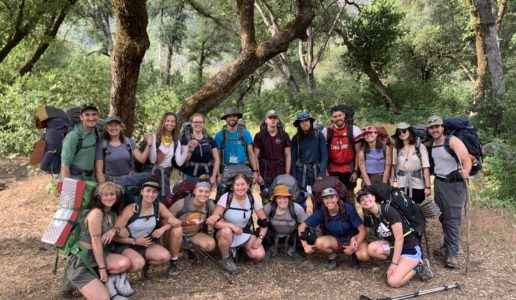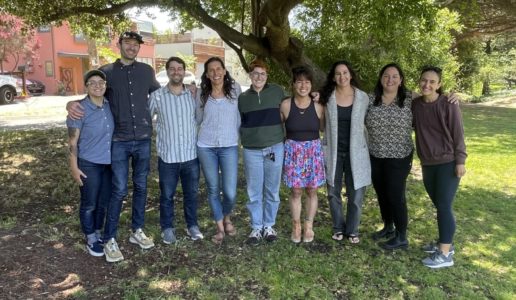Advice for Boomers This Passover: Listen to the Next Generation
By: Ken Kramarz
Passover is coming, a time when grown-ups tell stories and children are expected to listen.
This year I’m hoping to flip the script and have the children do the teaching and the grown-ups do the listening. Why? Because the younger generation has a unique take on Pesach’s eternal messages about slavery and racial justice. Like the cruelty of the slave master who awakened Moses from his privilege, Black Lives Matter has awakened this generation’s passion for justice, equity, diversity and inclusion.
So I’m interested in what they have to say.
If you’re like me – a Jewish Boomer who grew up with the Civil Rights Movements of the 60s and thinks he’s pretty woke – you may be surprised by how out-of-touch we appear to the 20 and 30 somethings sitting across from us at the seder table or zoom screen.
We have different vocabularies, historical touch points (“Where were you when Kennedy was shot?”) and priorities: when they go to a coffee shop they want the code for the wi-fi. We want the code for the bathroom.
But a fresh take on the Haggadah may help us bridge this generation gap and provide a path towards learning together.
The traditional Haggadah talks about the “Four Sons.” Hot tip: If you’re not using a Haggadah that talks about the “Four Children,” put an orange on the Seder plate and tell everyone you’ll upgrade next year. Either way, let’s imagine a Seder where we talk instead about the “Four Grown-ups.”
What does the wicked grown-up say?
“Why are you so hung up on Black, Indigenous and People of Color?” They say “you” instead of “we,” as if the commandment to pursue justice doesn’t apply to them. They say “you” instead of “we” as if Jews of Color did not exist.
One might remind them that while trauma and slavery may be history for some of us, it is painfully current for many others. And if the wicked grown-up can’t muster any emapthy, one might remind them that Jews were liberated from slavery over 3,000 years ago and we’re STILL kvetching about it today!
What does the simple grown-up say?
“I just don’t get it.” After the Seder, send them a link to a video, blog, article or book that will start to open their eyes. There are hundreds in your phone to choose from. I suggest “The Color of Water” by James McBride.
What does the wise grown-up say?
The wise grown-up doesn’t say anything, at least not right away. They continue to listen and learn. There’s a great mnemonic device to help us through challenging conversations about race and justice. It was created by April Baskin, founder and CEO of Joyous Justice. April – who identifies as Black and Jewish and is a certified maven on challenging conversations – suggests we use KAVOD, the Hebrew word for “honor” to remember:
K–Keep calm
A–Acknowledge how you’re feeling/what is happening
V–Validate the other person
O–Offer a solution or invite them to say more
D–Debrief and do–take action!
And what about the grown-up who doesn’t know how to ask a question?
They just roll their eyes and complain about “cancel culture” and micro-aggressions. Give them an extra portion of compote (stewed prunes). It may help them loosen up.
When I was a teenager, it was popular to say, “Don’t trust anyone over 30.” It made a lot of sense to me then, partially because I never imagined myself becoming anyone over 30. Now that I have children who are over 30, I really see myself on the other side of the generation gap.
But these kids today seem better informed and better organized than we were back then. And what’s more, if you honor them in the “kavod” way, they will passionately and compassionately educate you.
So this Passover, try handing over the moral leadership to the next generation. They have so much to offer and are ready to bend the arc of the moral universe towards justice.
Ken Kramarz is our Tawonga Institute Director and previously served as the agency’s executive director for more than 30 years. Read more about Ken here.

